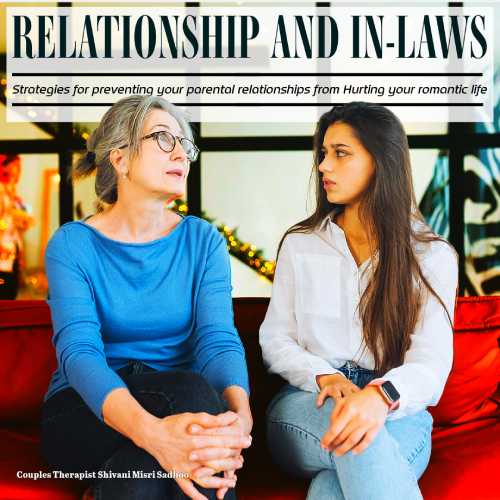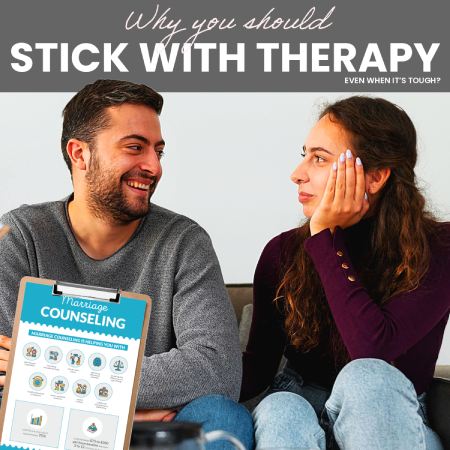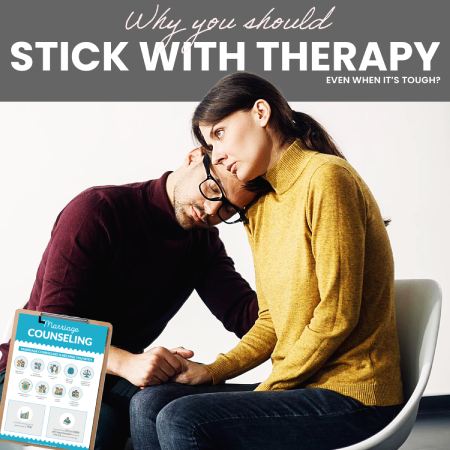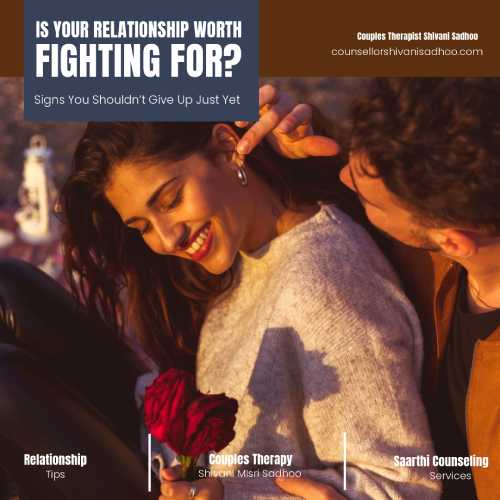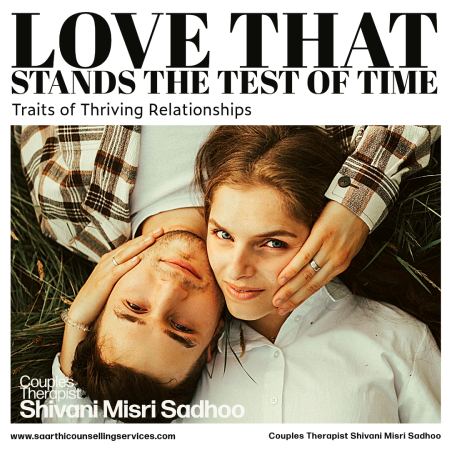Navigating the complexities of romantic relationships can be challenging, especially when parental dynamics come into play. While our relationships with our parents are often deeply ingrained and significant, they can sometimes inadvertently impact our romantic endeavors.
However, with awareness and intentional strategies, it’s possible to maintain healthy boundaries and prevent parental relationships from negatively affecting your romantic life, says leading family and couples therapist Shivani Misri Sadhoo in this blog.
What are the strategies to prevent your parental relationships that may hurt your romantic life?
According to Shivani Sadhoo, you need to follow the given process that may yield you good results. These are:
Awareness is Key
The first step in preventing parental relationships from harming your romantic life is to acknowledge the influence they may have. Reflect on how your upbringing and interactions with your parents shape your views on love, communication, and intimacy.
Recognizing patterns or behaviors learned from parental relationships can empower you to address them effectively.
Open Communication
Communication is the cornerstone of any successful relationship. Be open and honest with your partner about your family dynamics, including your relationship with your parents. Discuss any concerns or boundaries you feel are important to maintain within your romantic relationship.
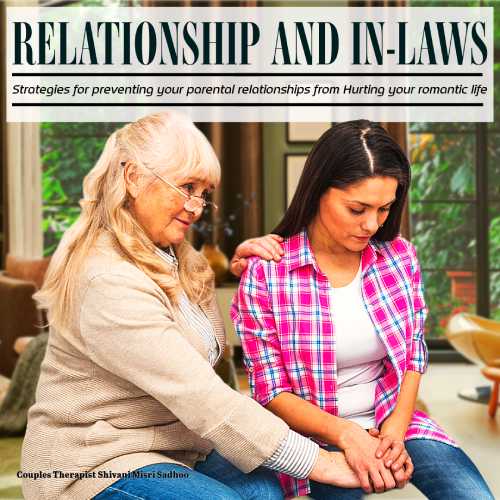
Establish Boundaries
Setting clear boundaries is crucial for maintaining healthy relationships with both your parents and your partner. Communicate your boundaries respectfully but firmly, ensuring that both parties understand and respect each other’s needs. Boundaries may include time spent with parents, involvement in decision-making, and privacy within your romantic relationship.
Prioritize Your Partner
While it’s natural to value your relationship with your parents, it’s essential to prioritize your romantic partner. Make time for one-on-one experiences and prioritize their needs and feelings. Show your partner that they are valued and respected within the relationship.
Seek Support
If you’re struggling to navigate the complexities of parental relationships and romantic endeavors, don’t hesitate to seek support from a therapist or counselor.
Professional guidance can offer valuable insights and strategies for managing challenging dynamics and fostering healthier relationships.
Set Healthy Expectations
Unmet expectations can often lead to conflict and resentment within relationships. Be mindful of the expectations you hold for both your parents and your partner, and ensure they are realistic and healthy. Recognize that your partner cannot fulfill the role of your parent, nor should they be expected to.
Practice Self-Awareness
Take time to reflect on your own thoughts, feelings, and behaviors within your relationships. Are there patterns or triggers that stem from your parental relationships? Cultivating self-awareness can help you identify areas for personal growth and ensure that past dynamics don’t negatively impact your romantic life.
Cultivate Independence
Developing a sense of independence and autonomy is essential for maintaining healthy boundaries within relationships. While it’s natural to seek guidance and support from your parents, strive to make decisions independently and assert your own identity within your romantic relationship.
Focus on Growth
Relationships, both with parents and romantic partners, require ongoing effort and growth. Embrace opportunities for personal and relational development, and be open to learning from past experiences. Approach challenges with a growth mindset, recognizing that setbacks can lead to greater understanding and resilience.
Celebrate Differences
Embrace the uniqueness of both your parental relationships and your romantic partnership. Recognize that each relationship serves a different purpose and brings its own strengths and challenges. Celebrate the diversity of experiences and perspectives that contribute to your overall growth and fulfillment.
Preventing parental relationships from harming your romantic life requires awareness, communication, and intentional effort. By establishing boundaries, prioritizing your partner, seeking support, and fostering personal growth, you can navigate the complexities of family dynamics while nurturing a healthy and fulfilling romantic relationship.
Remember, every relationship is unique, and with patience and commitment, you can create a partnership that thrives despite any challenges along the way.
